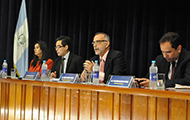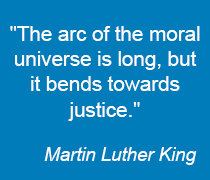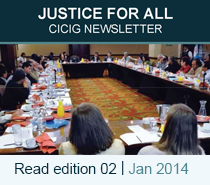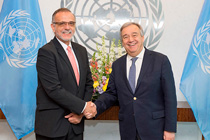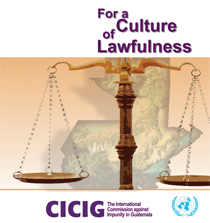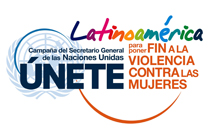PRESS RELEASE 060
FIGHTING MONEY LAUNDERING
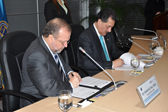 Guatemala, November 4, 2011. As part of joint efforts to fight money laundering, Francisco Javier Dall'Anese Ruiz, Commissioner of the International Commission against Impunity in Guatemala (CICIG), and Víctor Mancilla Castro, Superintendent of Banks, signed an Administrative Agreement of Interinstitutional Cooperation.
Guatemala, November 4, 2011. As part of joint efforts to fight money laundering, Francisco Javier Dall'Anese Ruiz, Commissioner of the International Commission against Impunity in Guatemala (CICIG), and Víctor Mancilla Castro, Superintendent of Banks, signed an Administrative Agreement of Interinstitutional Cooperation.
"In Guatemala, we are witness to the serious impact of criminal groups who operate illegally and are linked to organized crime, money laundering, extortion, drug trafficking and corruption. The strength of this criminal activity it such that it can hinder development and civic peace," stated the Superintendent.
In response to the problem, he said the agreement will serve to improve "coordination, cooperation, and standardize criteria—all under the principles of reciprocity, gratuity and a sense of belonging. By doing so, the aim is to consolidate communication mechanisms, information exchange and training programmes, sharing experiences of common-interest for us and the Commission and fulfilling its mandate.
He also indicated his awareness of the valuable support provided by the United Nations through CICIG. The latter strives to support, strengthen and cooperate with institutions of the State of Guatemala that are responsible for the investigation and criminal prosecution of crimes presumably committed by illegal security forces and clandestine security organizations and any other criminal conduct related to such entities.
Importance
In his address, the Commissioner highlighted the importance of the agreement at a time when Central America is suffering at the hands of Mexican and Colombian criminal organizations. These organizations are shifting their illicit operations, especially money laundering, to Central American countries.
"Money is the power source of criminal organizations; a criminal structure without capital is akin to a business with no economic resources. The power of these groups stems from the money they use to finance their bribes and violence," he stressed.
Therefore, the CICIG Commissioner said it was fundamental that such groups be stripped of their economic resources, because otherwise they will continue to operate from within prison and negatively impinge upon the functioning of the State.
"With these agreements, Guatemalan institutions began to create awareness—it is no longer a question of addressing the justice problem individually, without any communication with other government offices. There are criminal organizations in each office and they are interlinked, leading to the destruction of the Guatemalan State," he said.
The Commissioner believes that by coordinating the State as a whole, a common front could be created as well as a force with its own identity, capable of fighting and overcoming organized crime in the country.


